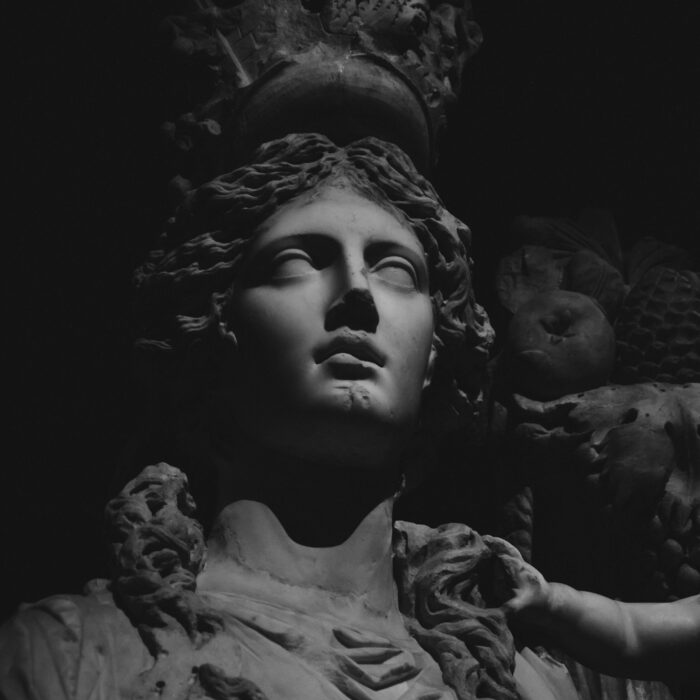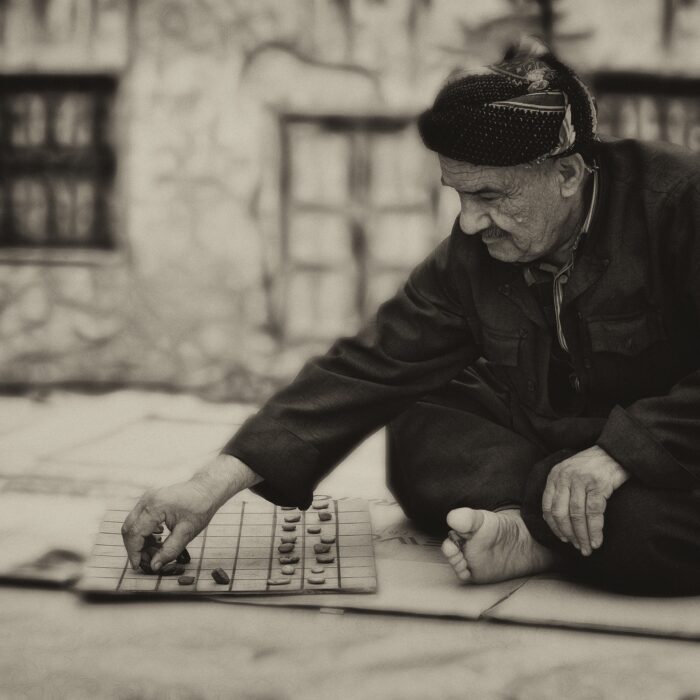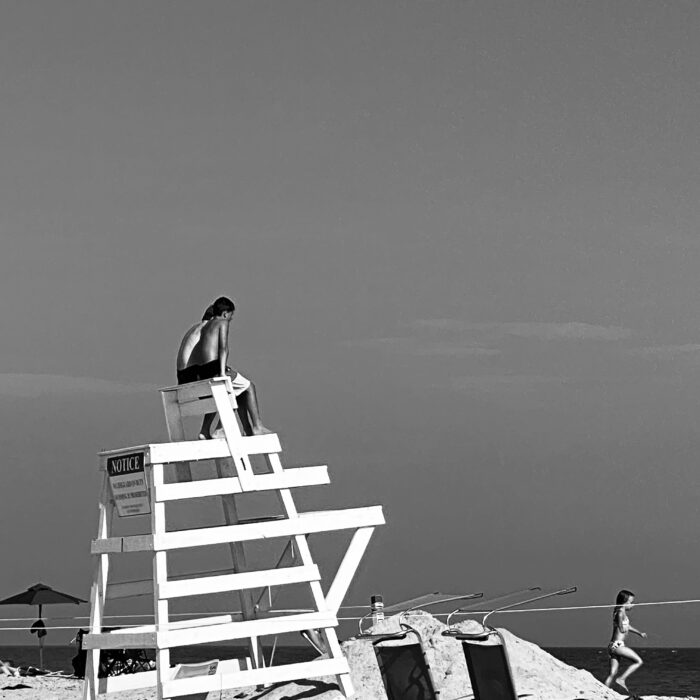You have no items in your cart. Want to get some nice things?
Go shopping Claire Duckworth is a talented university scholar and an exceptional tutor. She is capable of compassion and sage advice, although disdainful of anyone who requires too frequent a dose of either. She is a valued colleague: strong will, strong opinions, but not monomaniacal; no game player unless all agree that the game’s the thing—of course, then she can be downright sneaky. She is a woman of intellect, of intense discriminations, lofty goals, and exacting expectations. She is, quite simply, a snob, a real toffer. She was, for a while, a circumspect snob but has recently recovered from that malady.
Claire Duckworth is a talented university scholar and an exceptional tutor. She is capable of compassion and sage advice, although disdainful of anyone who requires too frequent a dose of either. She is a valued colleague: strong will, strong opinions, but not monomaniacal; no game player unless all agree that the game’s the thing—of course, then she can be downright sneaky. She is a woman of intellect, of intense discriminations, lofty goals, and exacting expectations. She is, quite simply, a snob, a real toffer. She was, for a while, a circumspect snob but has recently recovered from that malady.
Last term Claire had a crisis of confidence. Rather unexpectedly, the crisis did not involve her work. It may have been enhanced by her work, but it was not a crisis about her work. A sociologist, Claire had just completed her third book, The Social Scientist through the Looking-Glass, an edgy, erudite, irritable account of the failures of her field and the blatantly obvious path out of the quagmire. It was well received and more widely reported than either of her previous works—which had been serious little volumes full of graceful reflection and convoluted data sets. How interesting, she noted, that it was her vitriolic volume that excelled, that propelled her out into the open. Was that the source of crisis then? Fear of being disliked? Fear of being misunderstood or thought too harsh? Her colleagues thought not. Indeed, not a one of them thought of disliking Claire or the things she said in her book. They all assumed she was talking about someone else—everyone else really—and agreed with her thesis enthusiastically. They liked to be seen having coffee or lunch with her as never before, to be included in the coterie of those on the proper side of her looking glass. Was this the reason then? This sudden attention, this change of status? Did Claire perhaps think herself undeserving of such notice? Well … not really, not down deep, but perhaps she felt she ought to appear more humble, but this was only a small, small part of her problem.
The real problem was Larry.
Larry was the contractor working on a remodel of office space at the opposite end of Claire’s hall. Claire’s favorite toilet—the big, clean one, with the intact tiles and working soap dispenser—was located there. High-strung, tea-addicted, small-bladdered as Claire was, she visited her favorite toilet frequently and ran into Larry frequently too. She thought he was cute, sexy, mildly threatening with his bowed legs and his big grin, but from the start she pretended not to notice him. What, after all, could they possible have in common—besides, that is, a perverse echoing of some dire plot off the soaps and, along those same lines, fantastic, unbridled sex?
But then one day she ran into Larry in such a way that pretending not to notice wouldn’t do. She came busting out of her favorite toilet, looking terribly busy—not because she was but because she knew he was near and sworn not to ogle. Instead, she hurried out of the toilet armed with her most scholarly, stoic face but neglected to watch where she was going and ran smack into Larry as he bent over the drinking fountain. Of course, he’d been loitering there for quite some time, hoping to catch her eye. Instead he caught her knee in his midsection. The collision left both breathless.
And although she forgot to say she was sorry or offer him a hand getting back on his feet, she did manage to fight her desire to run away and remained mid-hover, quizzing him on details of the renovation, while he sat on the floor, grinning and “yes ma’am-ing” her.
Three mugs of tea and a bottled water later, she remembered her manners and managed to apologize as they met again outside the toilet, but this time he insisted that he had been injured by their previous smash up and required that she meet him after work and buy him a medicinal ale. He had made, as they say, an offer she could not refuse. The ale lead to his walking her home, which lead to his maddeningly seductive grin at the entrance to her flat.
“You may go inside now, Claire,” he finally said as she stared at him.
She didn’t go in, however, but remained at the door, swaying, bug-eyed, thanking him for a drink she had insisted on buying, until his hypnotic mouth grinned and spoke again.
“Alright, then, I think we should try an actual date. If you’re up for it. My treat. Tomorrow?”
“A date? A real date? Tomorrow? With you? Oh, God, yes. Brilliant, Larry, simply brilliant. Thank you. Thank you, ever so much. Although…”
“Yes, Claire?”
“Well … I should probably choose the restaurant. Let’s try to enliven our taste buds and not just chuck them over to the fryer, shall we?”
He grinned, tipped his head her way, and laughed all the way down the walk to his rusty Rover.
The following evening Claire chose her most beloved little bistro. It was a test, a test that Claire, waiting at her preferred table—the one under the nicest window, the one with the hanging lamp perfectly centered overhead, the table most discreetly central and yet necessarily askew of the common traffic run—was convinced Larry would not likely pass. First date, one and only date, was rather Claire’s habit, if not her actual preference. Oh, poor Larry. He’d not wear a jacket, he’d wear work boots or trainers, he’d hate the menu, hate her, hate the feel of the place and all it represented. She was sure—very nearly hopeful really—that last night’s dreamy man would prove a mirage or worse an undeveloped, yobby-brained caricature. Oh well. She sighed, fighting back tears. At least she was able to find some small comfort in the best table.
But then he arrived: gray trousers, old blue blazer, new loafers. Moreover, he seemed to know the hostess and several of the wait staff.
“Come here often?” Claire asked.
“Now and then. I did the woodwork on the bar. Handcrafted on site. I’m fond of it and like to come visit it occasionally.”
“That bar? Really? Why you’re a genuine artisan, aren’t you? … I thought you were a foreman or boss man or something.”
“Carpenter. Actually I run a cooperative of woodworkers, master carpenters.”
“Artisans.”
“Well, carpenter will do as well … but if you like, artisan, woodworker, joiner, yes.”
“Well, I do prefer those and I think there’s something very amiss in that. I’m afraid that the word carpenter has rather plebeian connotations for me of Johnny Cash and Christ.”
Larry laughed.
“Plebeian? And Cash and Christ bother you because…?”
“I’m not sure. Let me think a bit … because it, they, Cash and Christ, seem so … down-homey, trendy, American.”
Larry laughed.
“Cash is, I’m pretty sure, American. More dead than trendy but rather folksy. Common, folksy, earthy a problem, Claire?”
“Yes. I’m afraid so. Oh yes. Horrid really. Down, downer, downiest and homey.”
“And Christ is down-homey?”
“Simply the worst. Well, as a carpenter he is … for me … I think it’s because of that Johnny Cash song. I always felt the song was a muddle of Christ imagery and medieval balladeer tropes.”
Larry scratched the back of his head and smiled, frowned, wrinkled his forehead.
“Alright, Claire. I’ll bite. What song?”
“If I were a carpenter and you were a lady.”
“But I am a carpenter, Claire, and you are a lady.”
“God I hate that word.”
“Lady or carpenter? Although, both, right? We know how you feel about carpenter now.”
“No we don’t.”
“We don’t?”
“Well, I don’t.”
“Fine. So weren’t you just talking about carpentry being down-homey, like Cash and Christ?”
“Yes, I was and I must say that I think I sounded chock full of rubbish.”
Larry laughed.
“You have the most marvelous laugh, Larry.”
“Thank you, Claire, you have a very … odd mind.”
“Why thanks, handsome.”
“Ok … handsome. That sounds positive. Unlike carpenter.”
“Oh no. I’m liking carpenter just awfully right now.”
“Not too down-homey for you?”
“No, no. Simply put, I’ve recategorized both men—Cash and Christ—into fugitives of a decidedly antihero, postmodern design: excons, political dissidents, neoadamic everymen and recast carpentry into a medieval guildship—which makes it instantly proLabour and proTory. Now my ultra urban, anti-down-homey sensibilities can accept it.”
“It?”
“The word carpenter—the rightly honest word to use—over artisan or woodworker or something such—which would just be a weak attempt to elitize what is quite adequate as is.”
“Elitize. It that even a word, Claire?”
“Please.”
Larry laughed.
“You see, Larry, this is the danger I see with you.”
“Me? Danger? Maybe I should order a few more drinks before you go any farther.”
“The danger is that your laugh is so tempting, so absolutely addictive, that I’m afraid I’ll say just about any old outlandish thing to encourage it.”
“Ah … I’m flattered. And I’d wager that you have a fairly tempting laugh yourself, Claire.”
“I don’t believe I do, Larry darling.”
“Of course you laugh, Claire. You must.”
“Really? No, it feels much more like you are the one who must.”
He laughed.
“There. There. But I’m determined to fight the impulse.”
“Fight the impulse?”
“To make you laugh! Please, darling, try to stay up.”
“Alright.”
“Because I want to be true, be honest and really my most basic self with you. Not some vaudevillian witling.”
“Witling?”
“A would-be wit, a sorry, pathetic, tries-too-hard-and-fails wit.”
“So when I laugh it proves…”
“Nothing really. Only encourages me.”
“Well, I mean to encourage you, Claire. I do indeed. Now let’s get back to your wanting to show your most basic self. Basic. I’m a great fan of basic.”
“Well, there’s that, of course.”
“That?”
“The basic—as in both essence or philosophy or ethos as well as the accompanying physical aspect of relating to all those things.”
“Those things, Claire? What things exactly?”
“I’ve absolutely no idea. I’m afraid that laugh of yours has lowered my I.Q. in profound and wondrous ways.”
Which only made him laugh.
*
That night Larry laughed and Claire provoked his laughter right up to, and truth be told a little bit during, sex. It was lovely. It was socks-rolling-up-and-down delightful. It was at once thoughtful and thoughtless, frightening and cozy. And it was all right as rain until Claire returned to her flat the next morning and opened the door on to her same old self. New book, new man: it seemed impossible for these to coexist with the same old Claire, but the large pier glass in her entry hall proclaimed otherwise. She began to feel that transcendence of some sort was in order, a metamorphosis that would allow her to adjust to her recent luck, her new world. Her first impulse was to design an appropriate model. This, she quickly sensed, was not new at all and far too representative of her old, carefully calculated way of over-analyzing. No, no more. Inspiration, reflection, a certain forest-for-the-trees, into-the-woods wonderment was more the thing for the new Claire. And then it came to her: a Wordsworthian journey into nature. Absolutely inspirational. Analytical and yet … earthy.
Of course, Nature within reason. That is, Nature with a firm mattress, good views, a solid chef. She went to the library for the AA guide to grand country inns and found just the place, a beautiful rambling hotel situated on ninety acres of manicured gardens, lawns, and a most walkable woods. And so, with one very weak-minded call to Larry claiming a sudden visit to an old friend and a need to reevaluate society’s relationship with the word artisan before a second date (which sent him roaring with laughter), Claire ran away (but not too far away) to Heartwell Manor and the Chiltern Hills.
*
She arrived by train in Aylesbury Friday afternoon. She could feel her old self—her somber, critical, suspicious self—melt away with each curve of the road, each breathtaking view as the hotel van chugged and chortled the brief run from town to hotel. She was delivered to an impressive stone manor house and an autumn day as crisp and clean as a new fiver. She had always relished such arrivals, at national conferences or international symposia. Arrivals! How grand! Suitcases and luggage carts, dashing young men in uniform anxious to anticipate your needs or wizened old men dragging bags away while mumbling spells like ancient trolls. Lubricious lobbies: over-warmed, over-decorated, completely unreliable as to the true nature of bath linens or breakfast toast. Artifice and gilded guesses. Marvelous.
Claire’s mantra on arrivals has always been “Lucky me. Lucky me. Lucky, lucky me.” Naturally, that’s what she thought this time too—but she felt the need for more, a change, a new Claire-ification as it were. She wanted the sort of revelation you sometimes experience in Nature when gazing about, thinking you are taking it all in and then something will move—in your mind or in the heart of the woods—and you suddenly see a fawn or velvety stag, a half-fallen shooting hut, or a small, rare orchid hidden among a mossy trail and realize that this rare thing had been there all along hidden only by your own limited views. So Claire endeavored to begin with a new mantra. She tried, “Lucky tree. Lucky floating leaf. Lucky bird of evolving creation.” Presumptuous, she knew, to speak on behalf of such a significant and unfamiliar constituency, but she was so pathetically trying to be more than she’d ever been before. Or perhaps much, much less. She wanted most to uncover the foundation beyond the facade, the real beyond the constructed. And she felt sure, as she settled in her room and dressed for a pre-supper walk, that it was only a matter of time before all her artifice would fall away, like all the too-colourful leaves around her. Falling, shedding, making way for the bare Claire, ready to bud again, a new, simpler, smaller, sweetly greening Claire. In her very marrow, she felt hopeful that in the grand lobby of nature’s design, some hollow or bower or overlooked glade, she would find herself at last pared to essentials, worthy of her new star status and her new stellar lover. She would find, to put it in one of nature’s most perfect condensations, the kernel of Claire.
However, naturally enough, she didn’t.
Oh, she succeeded in sloughing off a layer or two of artifice, but most perversely she discovered no new her underneath. She was not only demoralized, she was derealized. Just so, she told herself. Now she knew the worst and would withdraw quickly from status and love before this void that was her lightless core became too widely recognized. It had been a good first date with Larry. The best ever, really. Why tempt the universe any further?
She stayed her two days, devoting herself to long walks and attempts at self-reflection. Each new excursion into nature, however, only revealed another angle of her nothingness. She boarded the hotel van Sunday afternoon depressed, wan, a sad shuffle away from tears. The old Claire, when lost in doubt, would attempt an hypothesis, or two, to keep the null at bay. And so on the edge of town, Claire had the driver stop so she could buy pencil and paper. Strangely, that’s where her true, enduring nature was actually revealed.
*
It was the usual sort of mini-marted gas and go. She moved in a gray, cloudy void, a mental dust storm, the detritus of her used-to-be. Claire picked up a spiral reporter’s pad and a pack of pencils. Both, she noted, elegantly retro.
“I can check ye out here, mum. Ye look like ye be dreaming of ye sweetheart or some such?”
“Pardon?”
“Well now, maybe ye can settle a question tween Bunny and meself.”
Claire found that she had wandered up to the till and was somehow engaged in conversation with the women there. One woman wore undersized jeans on her oversized frame, a black t-shirt, an orangey tanning-salon complexion, and semi-bleached hair with the same carroty hues. Her fellow worker was another yammy pie of a woman with a paler burnt sugar glaze, white jeans and t-shirt, and bright blue cat’s-eye glasses.
Claire approached the counter reluctantly.
“Would ye wear tis?” the first woman asked.
“Oh Darlene, give it a rest fer pity sake,” moaned the pale one.
“Oh shush, Bun. I ken what ye’d do. What bout ye, mum? Would ye wear tis?”
Claire realized that the woman was holding up a chunky necklace of rope-twisted gold, which had been previously obscured by the Harley-Davidson emblem blazoned across her chest.
Funny—that old saying of having your life flash before your eyes—funny how something as simple, as seemingly harmless, as an unexpected question can offer such a threat, but that’s just how the question hit Claire: a threat to her existence, her very being, and the rush of blood gone panic carried on that flash of totality, the essence of one’s life. Funny—well, sad, perhaps—but Claire drew a blank.
Both women behind the counter arched their overly plucked brows.
The first woman still held her chunk of gold rope but now she was laughing and snapping the fingers of her other hand at Claire, fingers high overhead, snapping right to left while her head did a little chav sister move left to right.
Claire was blank but not the least bit anxious. Waiting. She was waiting for what would rush in to fill this weird void. She didn’t feel so much adrift now as afloat. Buoyed, suddenly, by this odd calling out.
Slowly it dawned on Claire that perhaps she should reply in a manner pleasing more to the woman than to herself, even if it were a lie. A strange sensation. But, indeed, she felt sure that she would like to please this woman, say the things she wanted to hear. Perhaps … perhaps … even to invent … to create … a story, a fabrication of how often she wore her own bling with her finest Burberry and hogwear. What? What? What an extraordinary idea! She realized she had been thinking of outlandish things to say to Larry. Yes the sort of thing to be said to Larry, to invoke from him that laugh, that mind-numbing, knee-buckling laugh. Oh god. She felt light-headed, some odd concoction of ill-disposed CO2 gurgling in her chest and throat.
“Well … well, really, darling … not with THAT!”
Claire heard herself utter these words in her very poshest tones, and suddenly there she was again: snooty and snide, loony and lovable, and above all so abundantly Claire.
“Possibly,” she continued with a slight hiccup and giggle, “a little black dress—if the neckline were just so, even better black turtleneck—cashmere of course—and pale, pearl-grey pants, Italian yarns, London fit. Or you could just let the thing tell you how to dress and to me, darling, it screams: seventies, disco, no underwear, Diane Von Furstenberg, graphic print wraps, and godawful wedgie heels—very authentic! But then something tells me that you’re being supremely authentic just as you are right here, right now. But you were asking me if I would and well my dearest darling girl, I would not!”
The woman stared, fingers twisting her rope-a-dope gold. The corners of her mouth took turns flexing, back and forth, as if weighing the pros and cons of not only Claire’s opinion but her very existence.
“Aw go on with ye,” the woman smiled looking back at her friend, “did ye pay ’er to say all tat? The both of ye, jazus, funny, funny.”
Then the two women smiled at Claire and sent her on her way.
Just beyond the door, Claire began to analyze how best to recast this roman-à-clef for Larry, maybe even a few colleagues. She suspected it was all about economy of scale. Economy and whole-hearted surrender. Of course, she was flabbergasted when she had to explain bling and hogwear to Larry. She accused him of being a cultural hermit, stuck as he was in his finely crafted medieval artisanship, his Everyman posings, his Lawrence-linked English ivy towerdom. She suggested he might want occasionally to join her in her journeys to the social microcosm of the mini-mart. And although she looked askance at him when he insisted that he was laughing at rather than with her, on the whole she thought she wore it rather well.
About C. R. Resetarits
C. R. Resetarits has new work out now in The Chicago Quarterly Review, The Southwest Review, Crannóg (Pushcart nominated story), and Midwestern Gothic; out soon in The Wisconsin Review, Reed Review, and Stand. Her poetry collection, BROOD, was recently published by Mongrel Empire Press, 2015. She lives in Faulkner-riddled Oxford, Mississippi.




